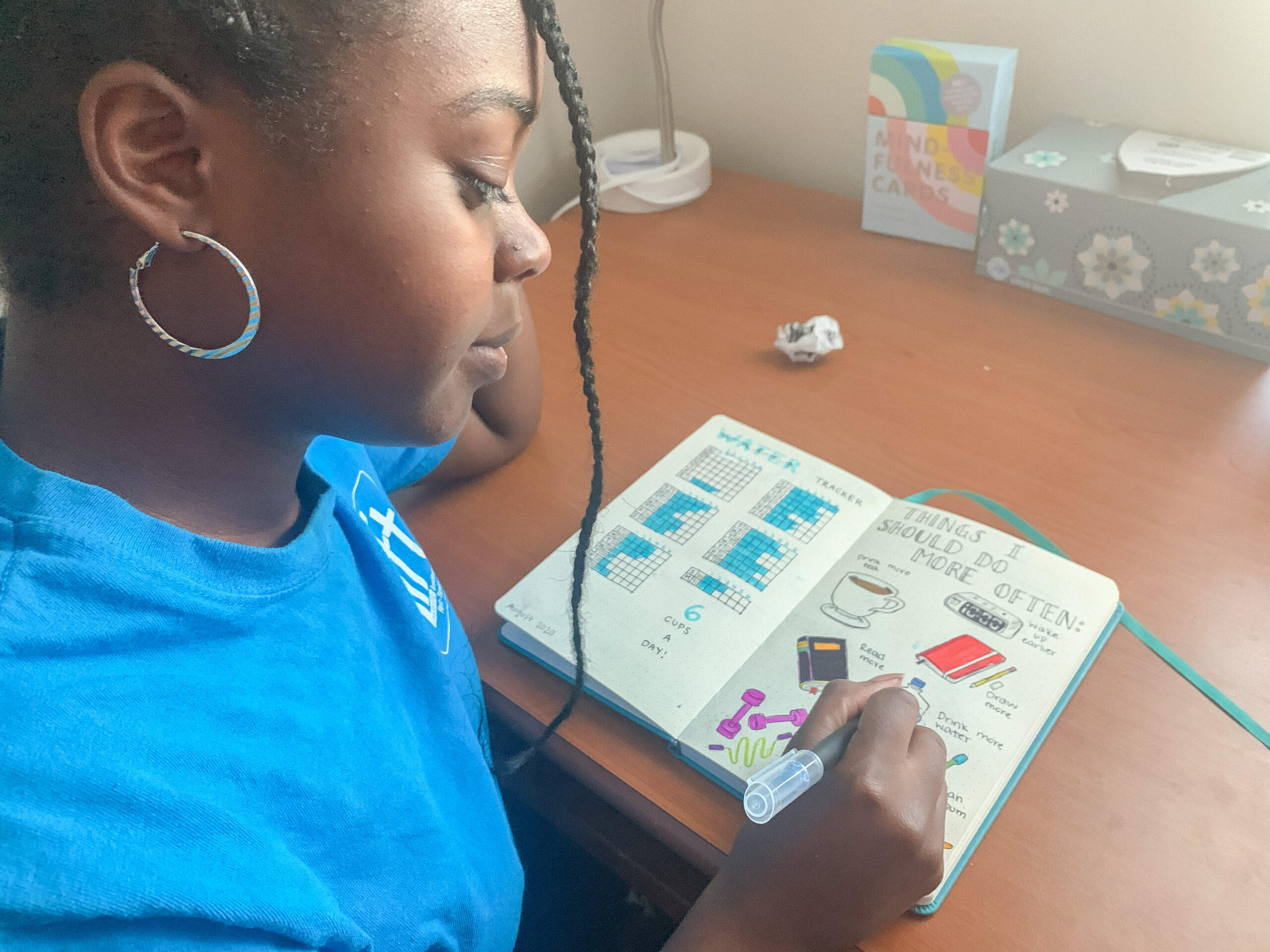Forty-one percent of college students regularly struggle with anxiety or depression, according to the American Psychological Association.
Therapy is often expensive, and students may be too busy to routinely schedule appointments. While professional help is the best way to ensure that mental health is properly looked after, therapists recommend other ways to look after one’s emotional and psychological wellbeing. A cost effective and fun way to do this that is recommended by numerous psychiatrists and doctors is writing regularly.
Writing regularly is an effective way to keep a calendar of each day’s emotional state, and what caused that day’s emotions. Stressors or triggers can be identified on any given day, so that they can be avoided in the future. Keeping a personal journal can also help students focus on the positive aspects of their lives, instead of only focusing on what goes wrong.
One method of journaling that therapists recommend is called “mindful journaling.” This is when students write without downplaying their emotions or insecurities, while also concentrating on the writing itself. Practicing mindful journaling on a regular basis can help students understand their behaviors and thought processes better, but can also help students feel more confident in recognizing their negative thoughts and feelings.
Journaling regularly can also help students gain emotional intelligence. Emotional intelligence refers to one’s ability to recognize, control, and express one’s emotions, as well as how to empathetically handle one’s relationships with others and with themself.
Journaling helps build emotional intelligence by allowing students to describe current problems and emotions within their writing. Writing to boost emotional intelligence entails students acknowledging their emotions while recognizing any issues or instances that could have caused the emotions. Building emotional intelligence can overall help students understand what causes mental health declines, so that they can avoid or better respond to these situations.
If keeping a journal or diary isn’t something that seems doable, there are plenty of ways to write regularly. Poetry is a great way to express oneself and how they are feeling. It has been a method of catharsis for countless authors, including Emily Dickinson, Edgar Allen Poe, and Robert Frost.
Poetry is also a form of art that requires two things: emotion and writing it down. Using poetry as a form of therapy can allow students to share their thoughts and feelings with others, or just a fun way to keep the depression at bay. Poetry slams and open mic nights are great opportunities to find like minded people, or to just let loose and share an intimate art form.
Students who are struggling with mental health should know that they are not alone in their feelings. Journaling is not a definite solution to anxiety and depression, but a way to manage symptoms. Students who feel as though their mental health has declined should reach out to loved ones, and if necessary, doctors.
For support or medical intervention, students can contact Crawford Counseling Services at (803)-323-2206. Students can also text HELP to 741741 to receive guidance and additional resources from the Suicide Prevention Crisis Text Line.
Photo by Jamia Johnson




